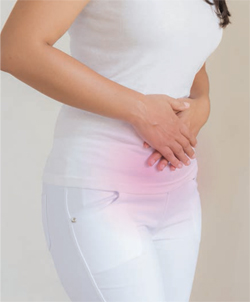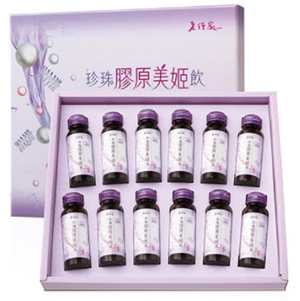05.2019 Life Guide
Lower abdominal pain kills! A Brief Talk on Pelvic Inflammation
Far Eastern Memorial Hospital Department of Obstetrics and Gynecology / Dr. Chen Peiling


Xiao Jie, a 26-year-old pseudonym, recently suffered from abdominal pain, increased vaginal discharge, and even a high fever one day. She was so frightened that she rushed to see a doctor. Obstetricians and gynecologists found that Xiaojie's pain was most obvious in the lower abdomen, and purulent secretions were also seen during internal examination. The pain of oppression of the cervix was intense, probably due to acute pelvic inflammation.
Pelvic inflammation is an inflammation of the female reproductive organs (uterus and bilateral ovaries, fallopian tubes) and peritoneum. When bacteria invade the uterus upwards along the vagina and cervix, and then spread to the pelvic cavity through the fallopian tube or parauterine connective tissue, it will lead to pelvic inflammation. Common symptoms include lower abdominal pain, increased vaginal discharge, chills or fever, and may be accompanied by urinary pain or diarrhea.
Because pelvic cavity has not only female reproductive organs, but also bladder, intestine and other organs, it is not easy to diagnose pelvic inflammation. Doctors need to collect medical history, physical examination, laboratory examination, and even imaging examination to make a comprehensive judgment. Therefore, when the above symptoms occur, the diagnosis of pelvic inflammation must be made by excluding diseases such as urinary tract infection, appendicitis, diverticulitis, ectopic pregnancy, ovarian or fallopian tube tumors with torsion or rupture.
Who is prone to pelvic inflammation?
Pelvic inflammation is common in women of childbearing age who have had sexual experience, because sexual behavior is the main cause of infection. In addition, vaginal infection, vaginal irrigation, invasive disposal (such as uterine curettage, hysterosalpingography, abortion), device of intrauterine contraceptives, and a history of pelvic inflammation are risk factors. If virgins or menopausal women develop pelvic inflammation, the possibility of low immunity (e.g. diabetes) or cancer should be considered.
How to treat pelvic inflammation?
Pelvic inflammation is usually caused by a variety of bacteria at the same time. Common bacteria include: Gonorrhea diplococcus, chlamydia... And so on. Therefore, patients must receive 10 to 14 days of complete antibiotic treatment, and can not stop medication because of improved symptoms, but also to avoid sexual behavior, sexual partners are invited to receive treatment together.
If fever persists, abdominal rebound pain is severe, and the ovarian and fallopian tube abscess is shown by ultrasonography or computed tomography, the patient must be hospitalized for intravenous antibiotic drip to monitor the condition. If there is no improvement, further laparoscopic or open drainage should be performed to avoid the rupture of abscess or septicemia, or even fatal septic shock.

Pelvic inflammation, sequelae difficult
Pelvic inflammation, if delayed treatment, incomplete treatment or repeated infection, can easily lead to sticking, resulting in infertility, ectopic pregnancy and chronic pelvic inflammation. In case of chronic pelvic inflammation, despite the use of effective antibiotics, patients will still feel lower abdominal pain, falling sensation or sexual intercourse pain for a long time, and when immunity is low, they are prone to acute recurrence, seriously affecting the quality of life and reproductive planning.
Because pelvic inflammation is difficult to diagnose and sequelae are so difficult, when suspected of pelvic inflammation, it must be treated actively to avoid causing regret. It is worth noting that chronic pelvic pain should not be equated with chronic pelvic inflammation. If the history of the disease is atypical or the therapeutic effect is not as good as expected, the differential diagnosis of endometriosis and interstitial cystitis should be considered.
Prevention of infection and recurrence
After understanding the causes and severity of pelvic inflammation, it is suggested that female friends should pay attention to the following matters:
* Safe sex:Single sexual partner, and the use of condoms throughout, but also should avoid living together in the physiological period.
* Good hygiene habits:Pay attention to vaginal cleanliness, but do not do vaginal lavage; in addition, should choose breathable underpants, wear less tight pants, in addition to menstruation, do not use pads.
* Early treatment:If there are symptoms, do not taboo medical treatment, should receive treatment as soon as possible, with a complete course of treatment, in order to avoid small lesions and major diseases.




















